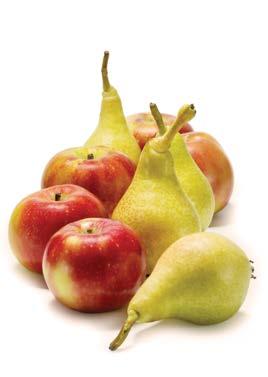
2 minute read
Need for workers on hail affected orchards greater than ever
APPLES & PEARS UPDATE
Need for workers on hail affected orchards greater than ever
By Alan Pollard : Chief Executive, NZ Apples & Pears
A significant hailstorm struck the Nelson/Tasman region, and parts of Central Otago on Boxing Day 2020. In Nelson, the Motueka and Moutere areas were particularly affected.
This was no ordinary event. On top of Covid-19 and a labour shortage, it just adds another level of stress and anxiety for growers and their families, and for staff and
their families.
While it may seem logical to assume that the demand for labour, both permanent and seasonal, will be less as a result of the storm, the opposite is true. The storm creates its own complexities, with a huge amount of work now needed to remove the damaged fruit from the trees, protect the damaged trees from disease risk, and do whatever is possible to salvage the orchards and ensure a crop for next season. To do this, our existing workforce, whether on the orchard or in support roles, is critical. The best option for workers whose employers have been affected by the hail is for them to stay where they are and contribute to ensuring that those businesses can recover. The whole community depends on this. NZ Apples & Pears is developing a platform to match workers who have some availability with growers who need additional help. Along with other horticulture leaders, we have approached the government to explore options for support. We’re committed to doing all we can to ensure that the workforce remains intact and engaged, and to ensure that businesses are best placed to recover from this event and continue to contribute to their local communities. In other adverse events the government has offered financial support, so we are keen to work with them to see what sort of relief package we can put together.
The Nelson region is responsible for 25% of the national apple crop, while Central Otago contributes 4%. The loss of any part of that crop is material. However, with more than 70% of the crop grown in other regions, this production along with what will still be produced in Nelson and Central Otago will ensure that domestic and global customers will still be able to enjoy New Zealand apples this coming season.










